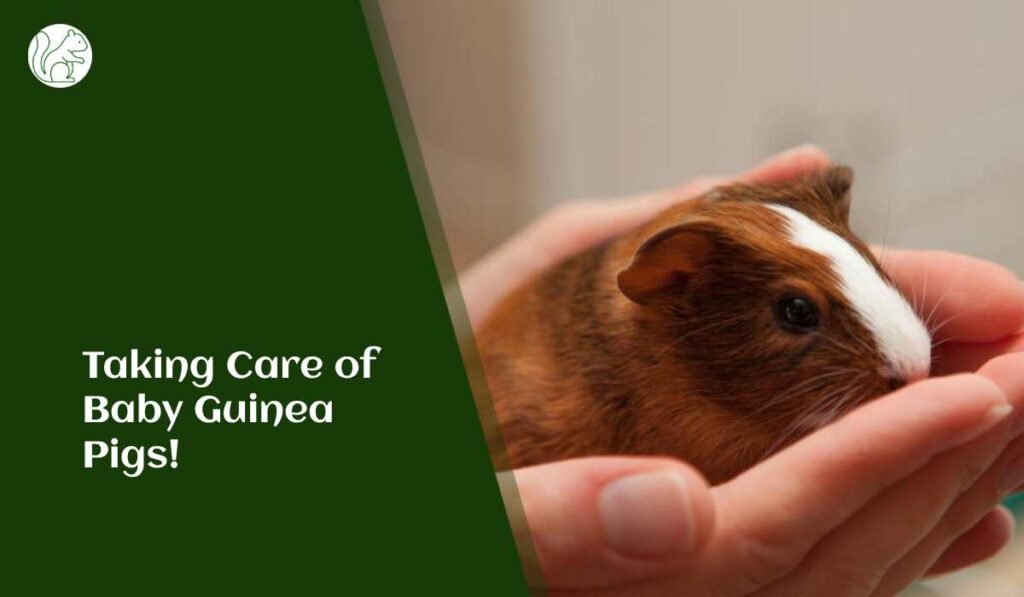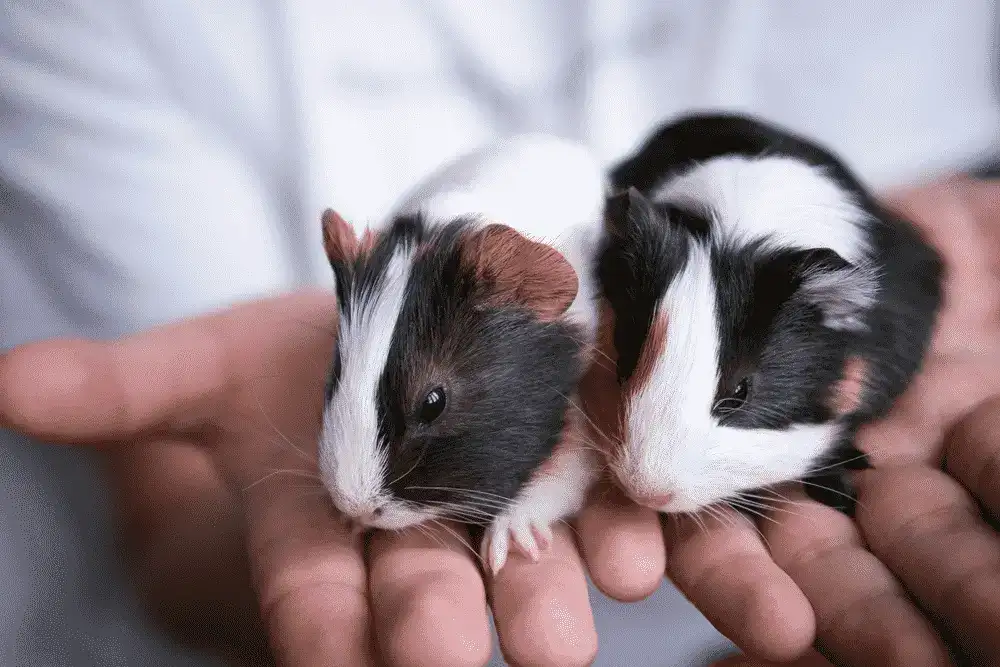Bringing home a baby guinea pig is an exciting experience, but it also comes with responsibilities. These small and adorable creatures require proper care and attention to ensure they grow into healthy and happy adults. In this guide, we’ll walk you through everything you need to know about taking care of baby guinea pigs and provide helpful tips to ensure they thrive.

Creating a Safe Environment
Before bringing your baby guinea pig home, it’s crucial to set up a safe and comfortable environment for them. Start by selecting an appropriate cage with ample space for exercise and play. Line the cage with soft bedding and ensure there are no sharp edges or small gaps that could potentially harm your furry friend.
Providing a Balanced Diet
A well-balanced diet is essential for the healthy growth of baby guinea pigs. Ensure their diet consists of high-quality hay, fresh vegetables, and guinea pig pellets. Freshwater should always be available, and occasional treats like small fruit pieces can be given in moderation.
Gradual Introduction to New Foods
When introducing new foods to your baby guinea pig’s diet, do it gradually. Their delicate digestive systems can be sensitive to sudden changes, so slowly incorporate new foods and monitor their reaction. This approach helps prevent any stomach upsets or digestive issues.
Socialization and Handling
Guinea pigs are social animals, and regular handling and socialization are vital for their well-being. Gently hold and interact with your baby guinea pig daily to build trust and create a strong bond. However, always ensure a calm and quiet environment during handling to avoid stressing them out.

Maintaining Proper Hygiene
Maintaining a clean living environment is crucial for the health of your baby guinea pig. Regularly clean their cage, remove soiled bedding, and replace it with fresh, clean material. Keeping their living area tidy helps prevent bacterial and fungal growth and ensures a healthy and happy pet.
Providing Enrichment
Baby guinea pigs are curious and energetic, so it’s essential to provide them with mental and physical stimulation. Offer toys, tunnels, and safe chewing objects to keep them entertained. Enrichment activities help prevent boredom and contribute to their overall well-being.
Monitoring Health and Behavior
Closely monitor your baby guinea pig’s health and behavior. If you notice any signs of illness, such as a loss of appetite, lethargy, or unusual discharge, seek veterinary care immediately. Guinea pigs are adept at hiding signs of illness, so early detection is crucial for successful treatment.
Preventing Common Health Issues
To ensure your baby guinea pig stays healthy, be aware of common health issues that can affect them. Dental problems, respiratory infections, and parasites are some of the conditions to watch out for. Regular vet check-ups can help catch potential issues early and prevent them from escalating.
Providing a Quiet and Calm Environment
Guinea pigs are sensitive to loud noises and sudden disruptions. Keep their cage in a quiet area of your home where they can feel safe and undisturbed. Avoid placing their enclosure near TVs or speakers to ensure they have a calm and stress-free environment.
Gradual Introduction to Other Pets
If you have other pets at home, introduce them to your baby guinea pig slowly and under supervision. Some pets may be curious, while others might view the guinea pig as prey. Ensure your baby guinea pig’s safety by allowing a gradual and controlled introduction.
Conclusion
Caring for baby guinea pigs requires dedication, attention, and love. By providing a safe environment, a balanced diet, regular socialization, and proper healthcare, you can ensure your baby guinea pig grows into a healthy and content adult. Remember to be patient and observant, as every guinea pig is unique and may require individualized care. The bond you build with your pet will undoubtedly be rewarding, making the effort well worth it. Happy guinea pig parenting!
